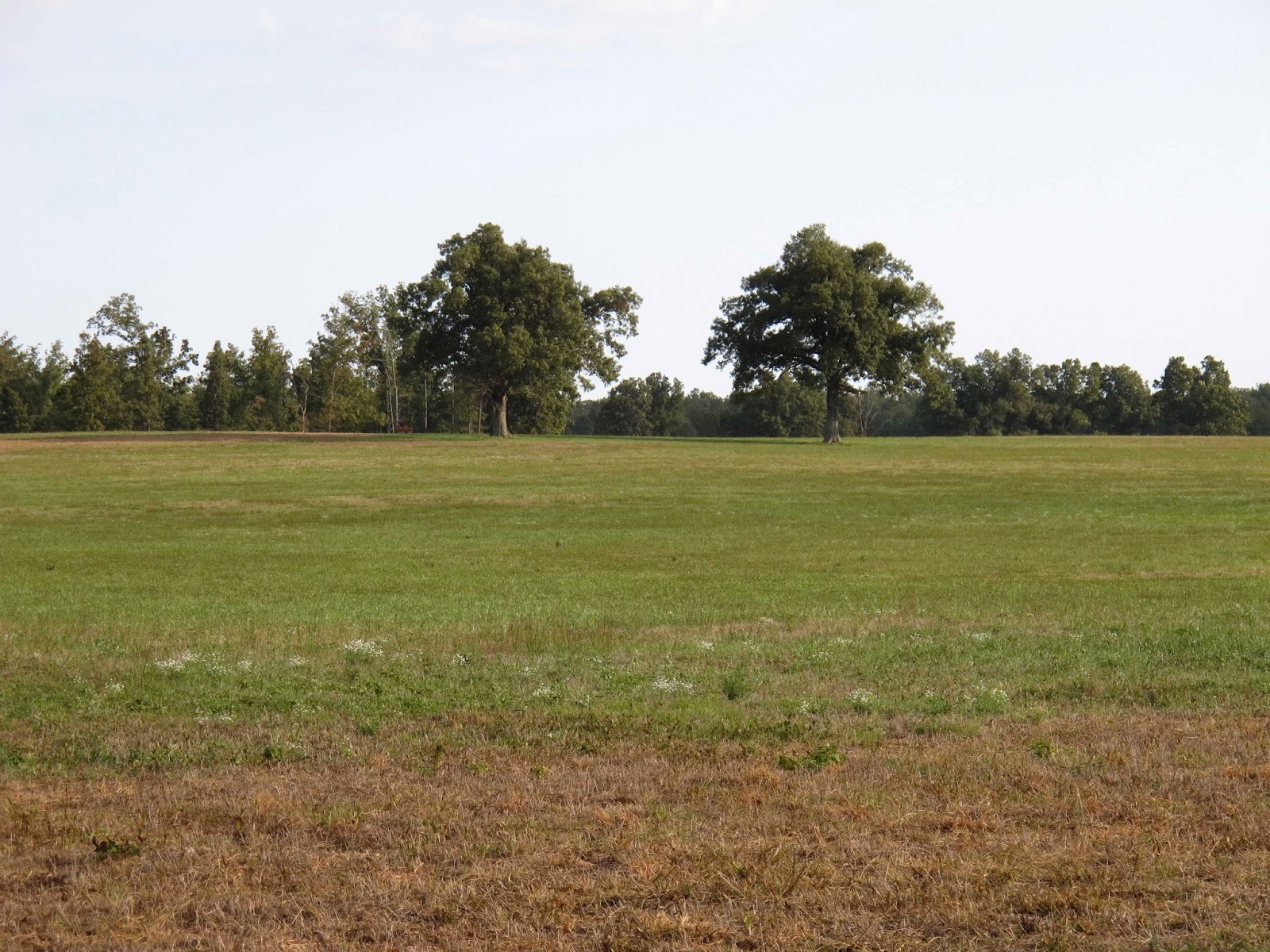Chapter 7 of Hogan’s memoir, On the Mission in Missouri
1857-1868, begins with the account of his third exploratory trip to the Ozarks.
A different priest friend accompanied him this time, Father William Walsh of
St. Peter’s parish in Jefferson City. As they rode the rails and by horseback,
their conversation undoubtedly ranged wide. Two young priests, both born in
1829, from County Limerick searched the American frontier for land suitable for
Irish immigrants fleeing their troubled homeland. Those were not their only ties. Like Hogan, Walsh
studied at the seminary at Carondelet and was ordained (1854) by Archbishop
Kenrick in St. Louis.
This wintery exploratory
trip was longer than the first two. It appears that Hogan met Father Walsh in St. Louis in mid to late January. From there they headed south at the end of the month. Parish records from Chillicothe indicate
the Hogan was absent from January 7 to March 13.
(from On the Mission in Missouri, 1857-1868)
FATHER WALSH THE EMIGRANT'S FRIEND
REV. William Walsh, the devoted zealous pastor of St. Peter's church, Jefferson City, ever a loving faithful friend of the emigrant, took the greatest possible interest in every effort made to lead the good Catholic Irish people from the railroad shanties and the back streets and cellars of the cities, to locate them on lands. With this purpose in view, he offered to accompany me on my next journey into southern Missouri, so that having knowledge of the country and of the progress of the undertaking in which I was interested, he could aid me, if in his power, to do so.
We set out from St. Louis together in the last days of January, 1858. Traveling on the Iron Mountain Railroad to its southern terminus, then somewhere in Washington County, we thence proceeded on horseback, following somewhat, but diverging more southerly from, the route taken by Reverend Father Fox and myself a short time previous. At Van Buren we found a Canadian named Ronge, a Catholic, whose three children I baptized. Going eastward from there we crossed the Black River at its junction with Brushy Creek. Reverend Father Walsh when crossing the river, although keeping his feet raised as high as possible along the horse’s sides, still could not keep them entirely out of the water, which was deep and very cold, it being freezing weather at the time. The result was bad for the dear Reverend Father. The only change of clothing which we had was a pair of socks, which he put on instead of the wet ones. These did not save him. The cold wet boots and the wet frozen clothing brought on a chill, which was soon followed by coughing, and fever. Next, the flushed face and the short, difficult breathing with other symptoms of pneumonia, came on apace.
We diverged from our intended course and made by the shortest way for Greenville, the county seat of Wayne County, where we hoped to find some kind of hotel accommodation. For some days the dear Reverend Father lay in danger of death, in a poor uncomfortable tavern, and under the care of an unskilful physician. Soon, however, he began to recover and by degrees grew better so as to be past all danger, for which merciful favor I was most grateful to Almighty God. During his convalescence I made a journey to Jackson in Cape Girardeau County, to employ an agent near the Land Office there, to transact business for the settlers. Returned to Greenville, I was glad to find my dear reverend friend in much better health and courage than when I had left him. We again set out together and rode by easy stages towards the Iron Mountain and Potosi, thence homeward by rail to St. Louis; he going to Jefferson City and I to Chillicothe.
Father Walsh survived the illness and the “unskillful
physician.” His cash contribution for the construction of the log church in
Oregon County is noted in Hogan’s small account book. He continued as pastor at St. Peter's in
Jefferson City until January 1863, when he became pastor of St. Bridget’s
parish in St. Louis., where he served for 35 years. He died there in December
15, 1898.
The archives of the Archdiocese of St. Louis have a file of
papers to and about Father Walsh. In the file are several letters over the years from Bishop Hogan. An article about
him in the 1920 Reunion book of St. Bridget’s Parish notes he was a defender of
the poor and enemy of the dance halls. The article recounts a story of Father
Walsh scattering revelers at a “Kerry Patch’ dance hall one Saturday night. They
note: “not a hand was raised against the giant priest.”
Mystery of the Irish Wilderness is now $16.95 (regularly $18.95), postpaid.
On the Mission in Missouri and Fifty Years Ago: A Memoir ,which
contains full text of both of Hogan's personal memoirs as well as
additional biographical information, is now $18.95 (regularly $24.95),
postpaid.


